Hispaniola Silver Thatch Palm
Scientific name: Coccothrinax argentea
POWO Status: Shrub or Tree
IUCN Red List threat level: Least Concern
GPS location: 17° 42′ 54.13″ N, 64° 49′ 47.13″ W
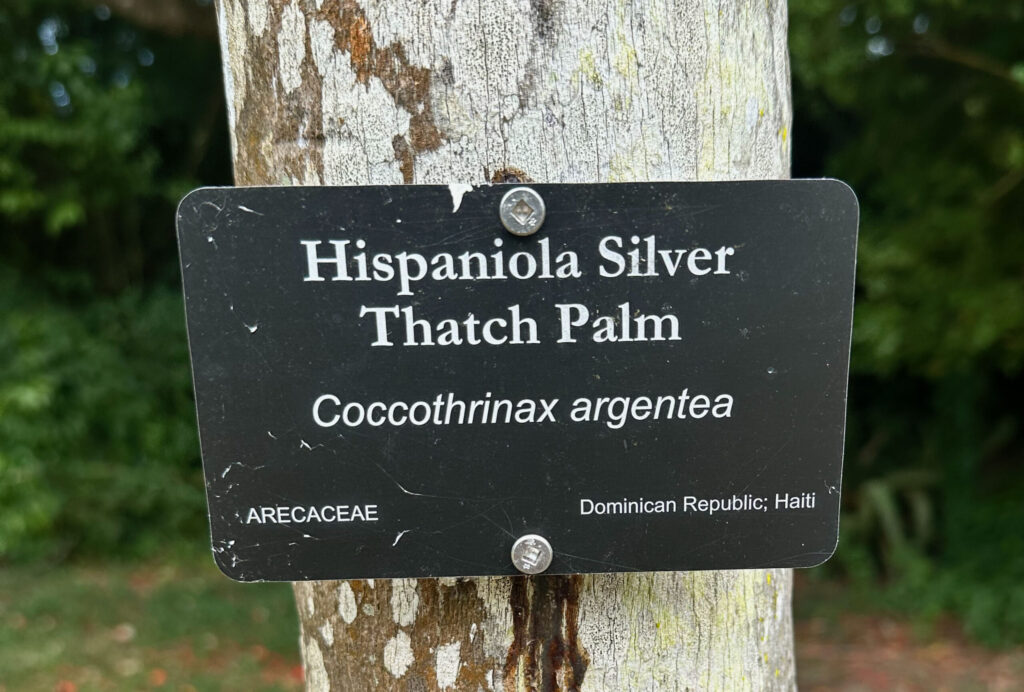
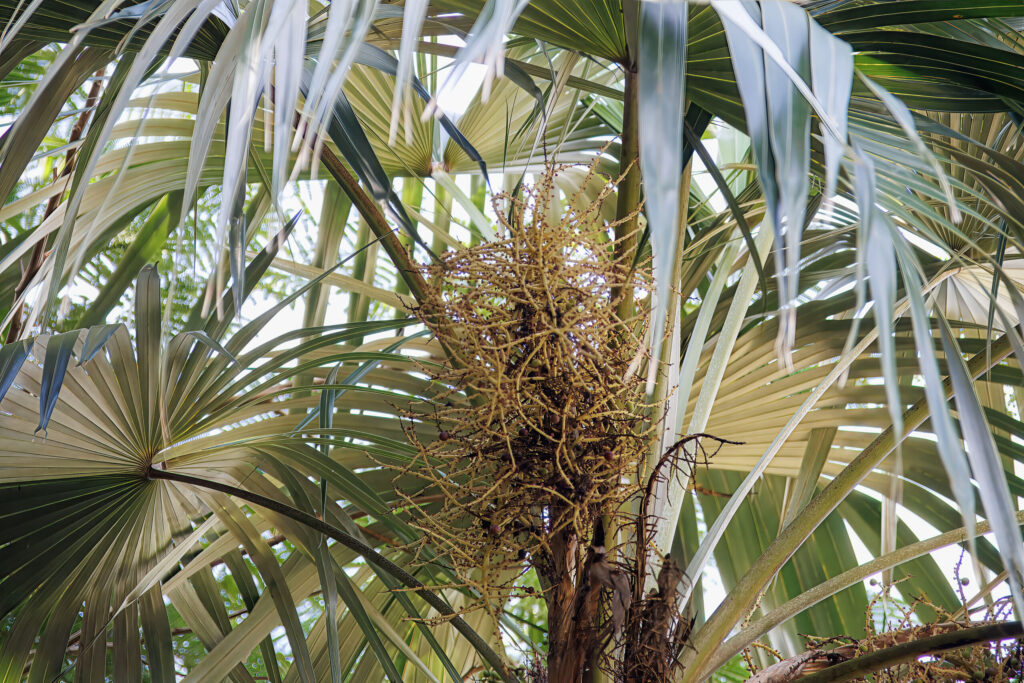
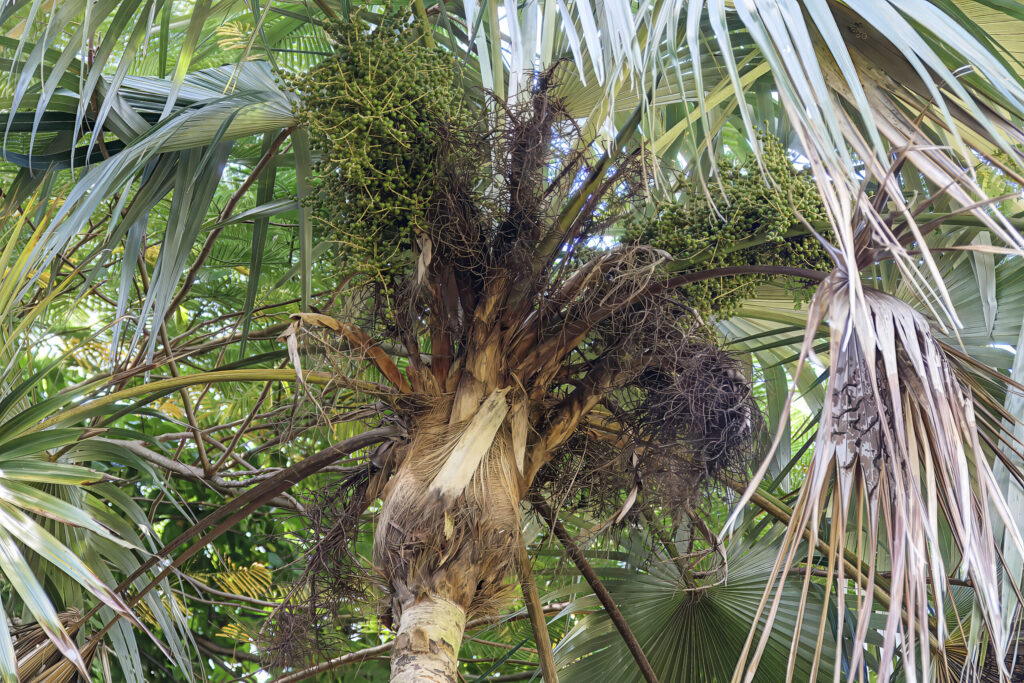
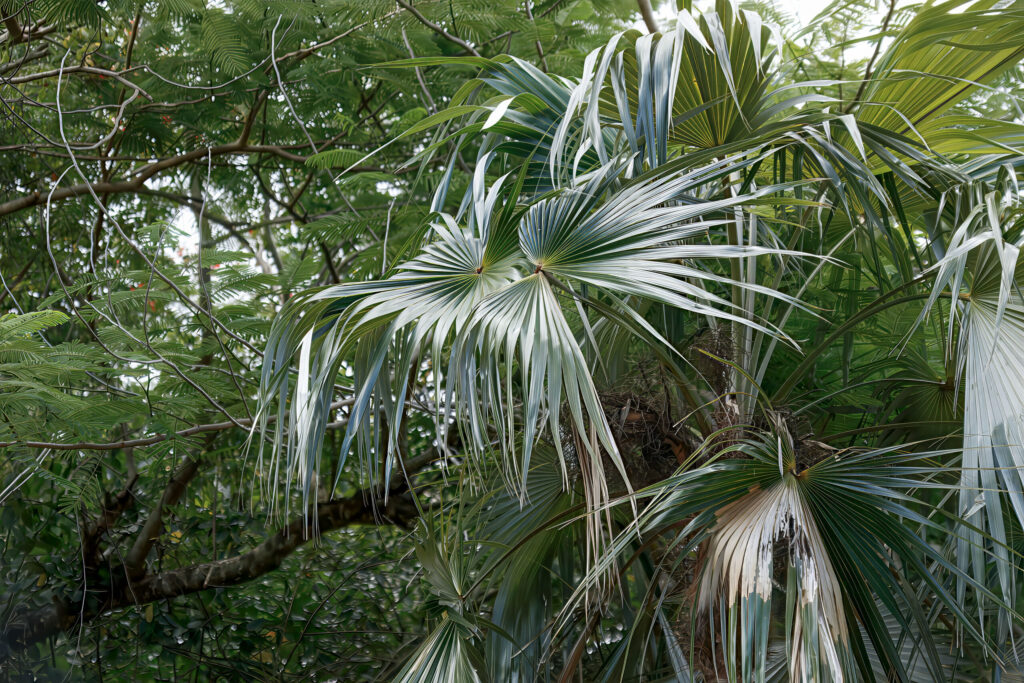
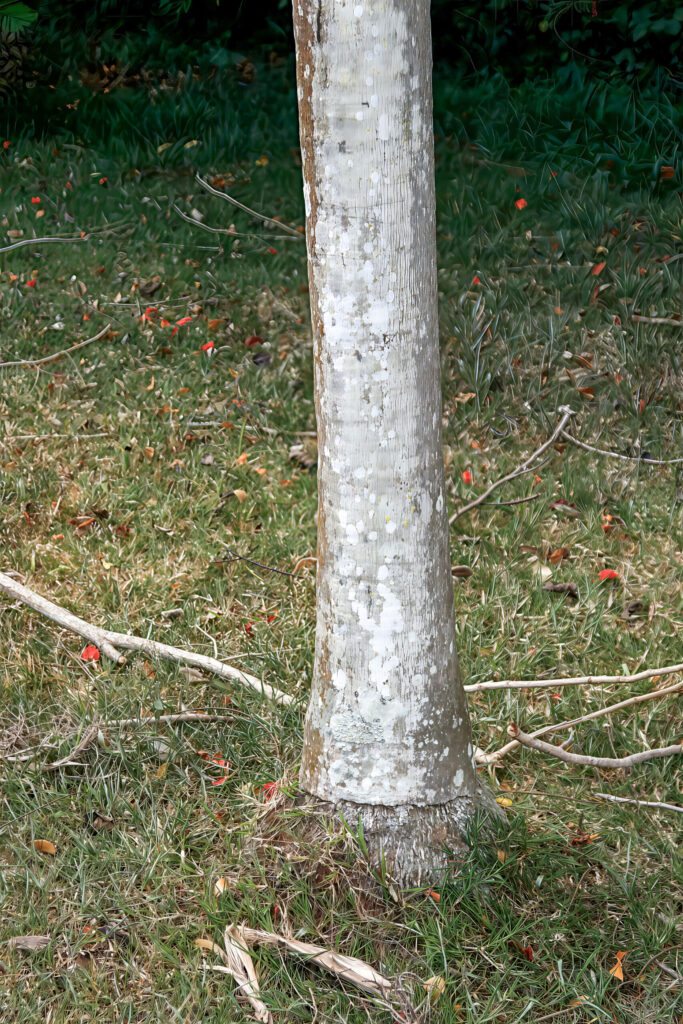
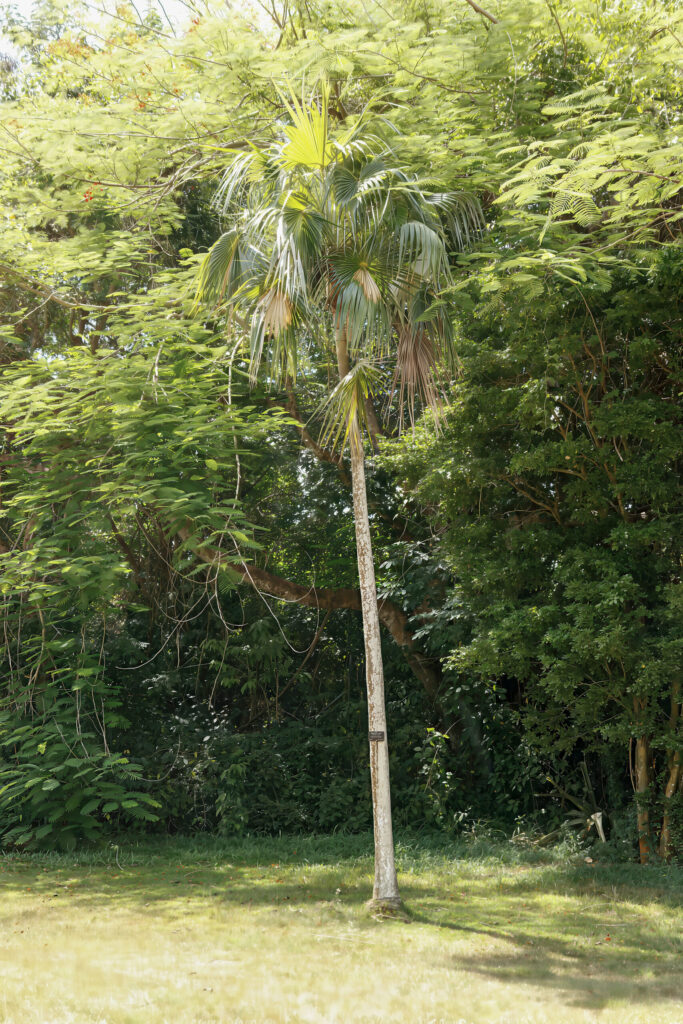
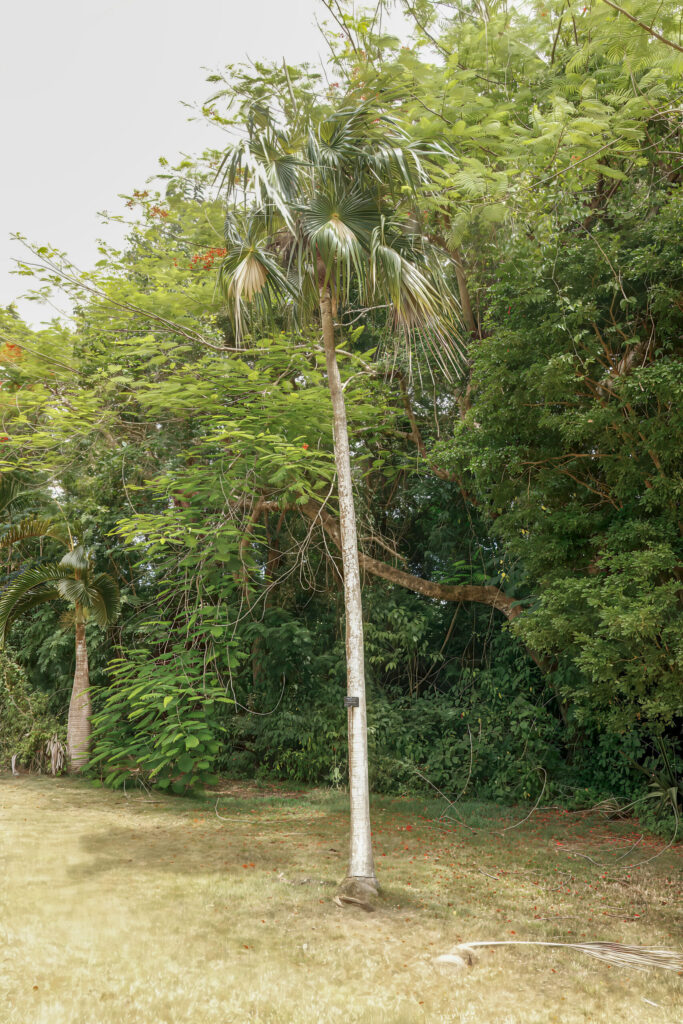
Medicinal Uses
Coccothrinax argentea, known as the Silver Palm, is used in traditional medicine, primarily for women’s health issues like uterine fibroids and hot flashes, and also for general pain relief, with young leaves sometimes eaten as a vegetable. This palm’s silvery leaves and resilience also make it popular for thatching and brooms, though medicinal uses focus on internal applications for specific ailments.
Specific Medicinal Uses:
- Uterine Fibroids & Hot Flashes: Traditional healers use it to address these common gynecological complaints.
- Pain Relief: Related species (Coccothrinax argentata) are used to treat general pain.
Other Uses:
- Culinary: Very young leaves can be cooked and eaten as a vegetable.
- Crafts: Leaves are woven into brooms and used for thatching.
Key Takeaway: While its uses extend to food and crafts, the Silver Palm’s medicinal role centers on traditional remedies for hormonal imbalances and pain, particularly in Caribbean folk medicine.
Observations:
Phenological Markers – Silver Thatch Palm (Coccothrinax argentea)
Family: Arecaceae (Palm family)
Common Name: Silver Palm, Puerto Rican Silver Palm
Habitat: Native to the dry forests and coastal areas of Puerto Rico and the Virgin Islands. Found in rocky, well-drained soils and often in regions with low rainfall.
Phenological Markers:
- Flowering Period:
Flowering typically occurs from late spring to early summer (May to June). The flowers are small, white, and grouped in clusters that emerge from the base of the leaf stalks. - Fruiting Period:
Fruits usually ripen late summer to early fall (August to October). The fruit is a small, round drupe, typically dark purple when mature. - Leaf Fall:
Evergreen, with leaves shedding only when older leaves die off. New leaves emerge regularly, keeping the palm lush and full year-round. - Budding Period:
New fronds begin to appear in early spring (March to April) after the flowering season.
Key Features:
- Leaves: Fan-shaped, silvery on the underside, giving the palm its characteristic “silver” appearance. The leaves are palmate and can grow up to 1 meter in length.
- Flowers: Small, white, borne in dense clusters on long stems.
- Fruits: Small, round, and dark purple when ripe. The palm produces a high number of fruits per cluster.
Additional Notes:
- Coccothrinax argentea is an iconic species in the Virgin Islands and Puerto Rico, valued for its ornamental beauty due to its striking silver leaves.
- It is drought-tolerant and thrives in dry, rocky environments, often found along coastal areas.
- This palm is also significant for local wildlife, as it provides food for birds and other animals.
